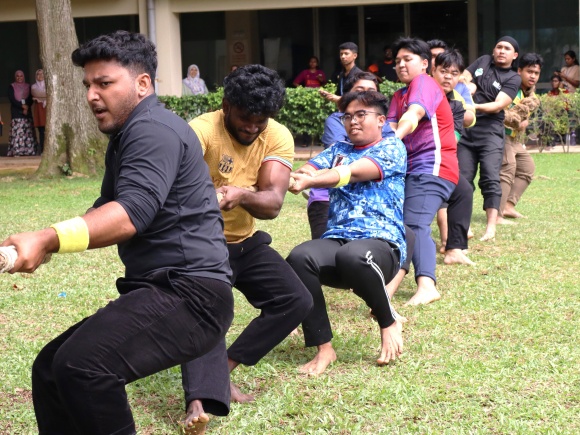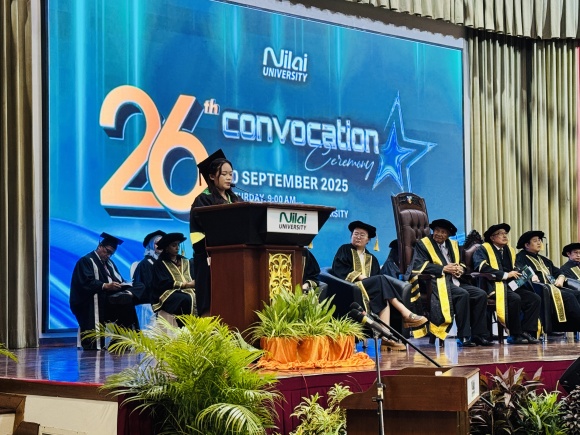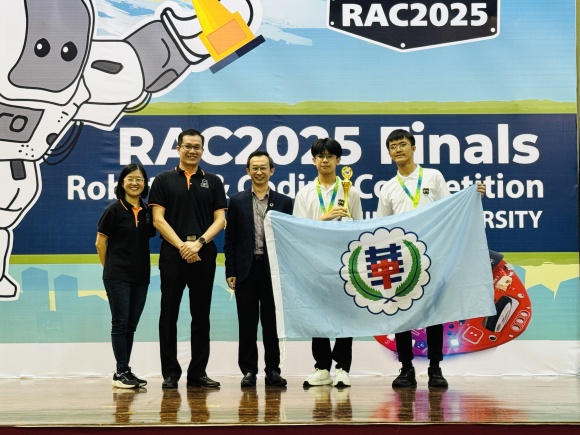First batch students from Nilai U receive BSc (Hons) in Aircraft Engineering from Kingston University, UK.
“Experience and a licence may well have been enough in the past but times have changed. Nowadays, in any profession, it is normally necessary to have a combination of experience, professional qualifications and academic qualifications in order to succeed. The aircraft industry is no different. In the future, it is likely that academic qualifications will become even more important,” says Steve Barnes, Field Leader Aircraft Engineering, Faculty of Science, Engineering and Computing, Kingston University, UK. He was at Nilai University (Nilai U) to present the first batch of graduates to complete the BSc (Hons) in Aircraft Engineering top up degree programme with their certificates.
In his speech, Barnes recognised the fact that most students focused on the European Aviation Safety Agency (EASA) B1-1 licence because of the opportunities is opened up both in Asia and overseas but was quick to stress that the skills gained and developed through completing a degree would improve their employability and benefit them in the future when they start to seek more senior positions within the industry..

Steve Barnes (Field Leader Aircraft Engineering, Faculty of Science, Engineering and Computing, Kingston University, UK) was at Nilai University (Nilai U) to present the first batch of graduates to complete the BSc (Hons) in Aircraft Engineering top up degree programme with their certificates.
Nilai U first approached Kingston University about the possibility of offering a top up degree option for its aircraft maintenance engineering students in 2010. The British university noted that Nilai U’s Diploma in Aircraft Maintenance Engineering syllabus was similar to its Foundation degree programme and were also very impressed with the level of facilities available on campus which include a purpose-built hangar with two aircraft.
Barnes used his own personal experiences to encouraged Diploma students to consider the decision regarding whether or not to complete the degree programme very carefully and to be cautious when listening to those who say it will not be of benefit to them. Returning to education after a one year study-break turned into a 10 year gap, Barnes explained how hard it had been getting back into study-mode, relearning material he had forgotten and juggling work and family commitments whilst studying – he stated – “I regret not having completed my degree immediately after my HND (higher national diploma),” he says. He was also asked students if they knew what they would be doing in 3 to 10 years time – and pointed out that even if they did not think the degree was important now, it may well be in the future.

A dozen graduates were on hand to receive their certificates and many said they opted to continue their studies as they realised the importance of having a degree. “Higher qualifications are always important and you get to learn so much more in this very specialised field,” says Ng Wai Pan, who was at the event with his family. Echoing those same sentiments is Mustafa Raad Almudares from Iraq who says that having a degree will certainly improve his career mobility. “Of course, EASA qualifications are important but this (degree) is for the long-term. It will allow me to be considered for managerial positions and is also a way in into the world of teaching. I am very inspired by the lecturers at Nilai U and perhaps one day, I would like to follow in their footsteps,” he says.
Nilai U’s Diploma in Aircraft Maintenance programme is two-and-a-half years in duration, with the final six months dedicated to On-The-Job-Training. Nilai U has a number of industry partners which include AirAsia, AirAsiaX, KLM, and Berjaya Air.



